The Dutch Shepherd is a highly versatile dog breed that originates from the Netherlands. Known for their intelligence, loyalty, and athleticism, these dogs have been used for a variety of tasks including herding, police work, and search and rescue. As a result, Dutch Shepherd dog pictures are often sought after by those who admire the breed's unique characteristics.
One of the defining features of the Dutch Shepherd is their coat, which can come in three different varieties: short, long, and wire-haired. The short-haired variety is the most common and is characterized by a dense, smooth coat that is typically brindle or fawn in color. The long-haired variety is less common and has a wavy or curly coat that comes in shades of gold or silver. The wire-haired variety is the rarest and has a harsh, bristly coat that is typically grey or black.
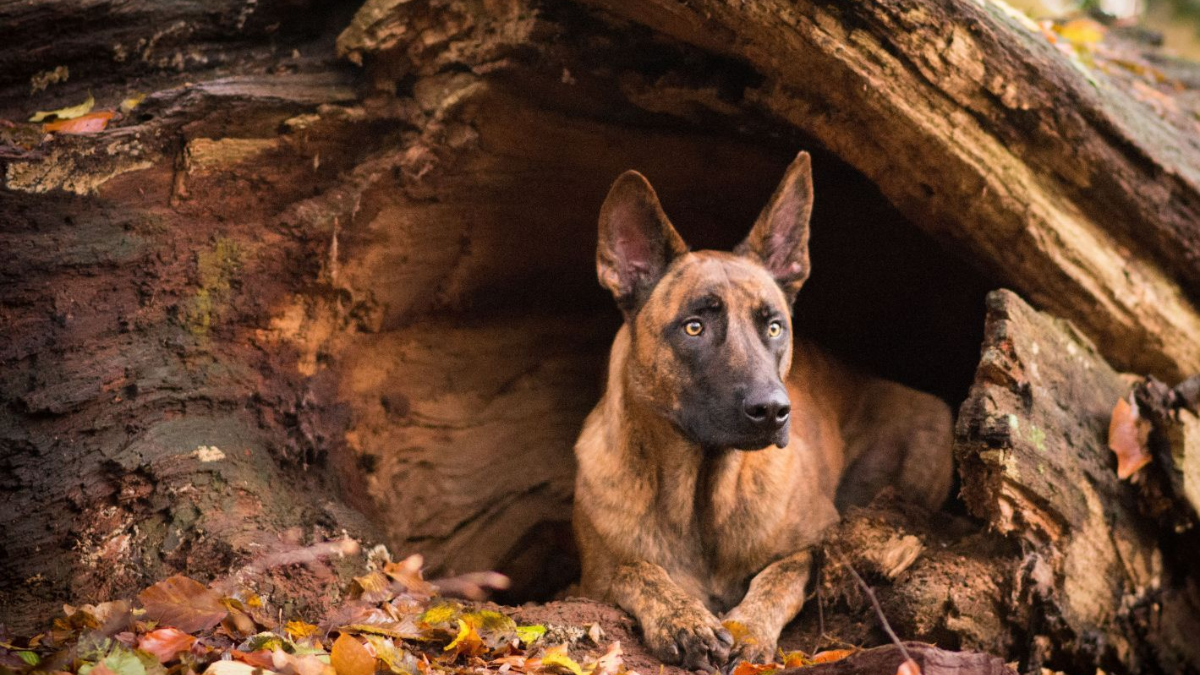
Despite their relatively low profile outside of the Netherlands, Dutch Shepherds are highly regarded by those who know them. Their intelligence, loyalty, and athleticism make them well-suited for a variety of tasks, and their unique coat patterns and colors make them an attractive choice for those looking for a distinctive and eye-catching dog. Whether you're a fan of the breed or just looking for some beautiful dog pictures to admire, the Dutch Shepherd is worth checking out.
Breed Overview
History and Origin
The Dutch Shepherd is a medium-sized dog breed that originated in the Netherlands as a herder. The breed was used to herd sheep and other livestock. The Dutch Shepherd was also used as a guard dog and as a police dog. The breed is known for its brindle coat, which is a mix of brown and black stripes.
Physical Characteristics
The Dutch Shepherd has a medium-sized body and stands at an average height of 22-25 inches. The breed has a muscular body with a long tail and medium-sized ears. The eyes of the Dutch Shepherd are almond-shaped and come in shades of brown. The coat of the Dutch Shepherd is short and dense and comes in a variety of colors including brindle.
Breed Recognition
The Dutch Shepherd is recognized by the American Canine Registry (ACR), the American Kennel Club (AKC), and the Dog Registry of America (DRA). The breed is also recognized by the United Kennel Club (UKC) and the Canadian Kennel Club (CKC). The Dutch Shepherd is a popular breed in the Netherlands and has gained popularity in other countries as well.

Overall, the Dutch Shepherd is a confident and loyal breed that makes a great companion for an active owner. The breed is known for its intelligence and trainability and is often used as a police or search and rescue dog. With proper training and socialization, the Dutch Shepherd can be a great addition to any family.
Temperament and Personality
Behavioral Traits
Dutch Shepherd Dogs are known for their high energy and intelligence, making them excellent working dogs. They are alert and loyal, making them great guard dogs and protectors. They are also highly trainable and adaptable, making them suitable for a variety of tasks and environments.
However, their high energy level can sometimes lead to destructive behavior if they do not receive enough physical and mental stimulation. They may also become reserved or wary around strangers if not properly socialized.
Suitability as Family Pets
Dutch Shepherd Dogs can make great family pets for those who are willing to provide them with the necessary exercise and mental stimulation. They are known for their friendly and affectionate nature towards their families, including children.
However, they may not be the best choice for families with very young children as their high energy levels can sometimes be overwhelming. Additionally, they may not be suitable for households with other pets, especially smaller animals, as their herding instincts may lead to chasing or nipping.
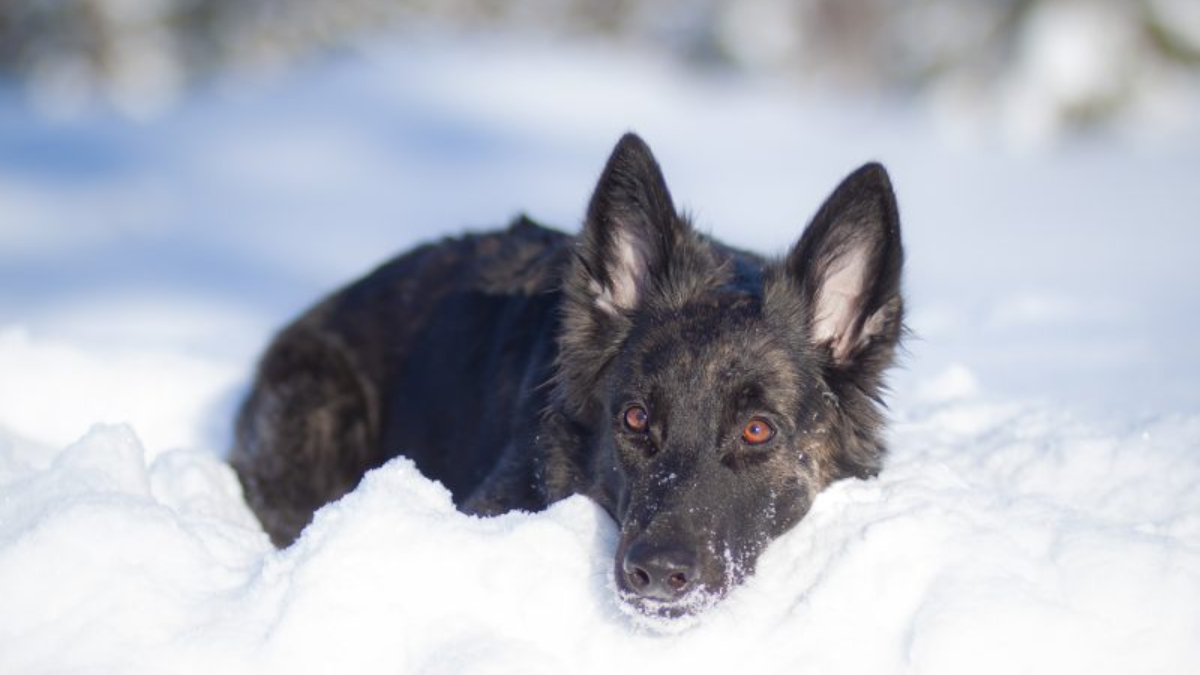
Overall, Dutch Shepherd Dogs can make excellent companions for those who are willing to provide them with the necessary training, exercise, and socialization.
Health and Care
Common Health Issues
Dutch Shepherds are generally healthy dogs, but like all breeds, they may be prone to certain health issues. One of the most common health problems in Dutch Shepherds is hip dysplasia. This is a genetic condition where the hip joint doesn't develop properly, leading to arthritis and pain. It is important to buy a puppy from a reputable breeder who screens their dogs for hip dysplasia.
Obesity is another health problem that can affect Dutch Shepherds. It is important to provide them with a balanced diet and regular exercise to maintain a healthy weight. Overfeeding can lead to obesity, which can cause a range of health problems, including joint pain and heart disease.
Diet and Nutrition
Dutch Shepherds require a balanced diet that is high in protein. It is important to feed them a diet that is appropriate for their age, size, and activity level. A high-quality dog food that is formulated for active breeds is a good option. It is also important to provide them with fresh, clean water at all times.
Grooming Needs
Dutch Shepherds have a short, dense coat that requires minimal grooming. They shed moderately year-round and heavily twice a year. Regular brushing with a comb or slicker brush can help to remove loose hair and prevent matting. Bathing is only necessary when they get dirty or smelly. It is important to trim their nails regularly to prevent them from getting too long and causing discomfort.
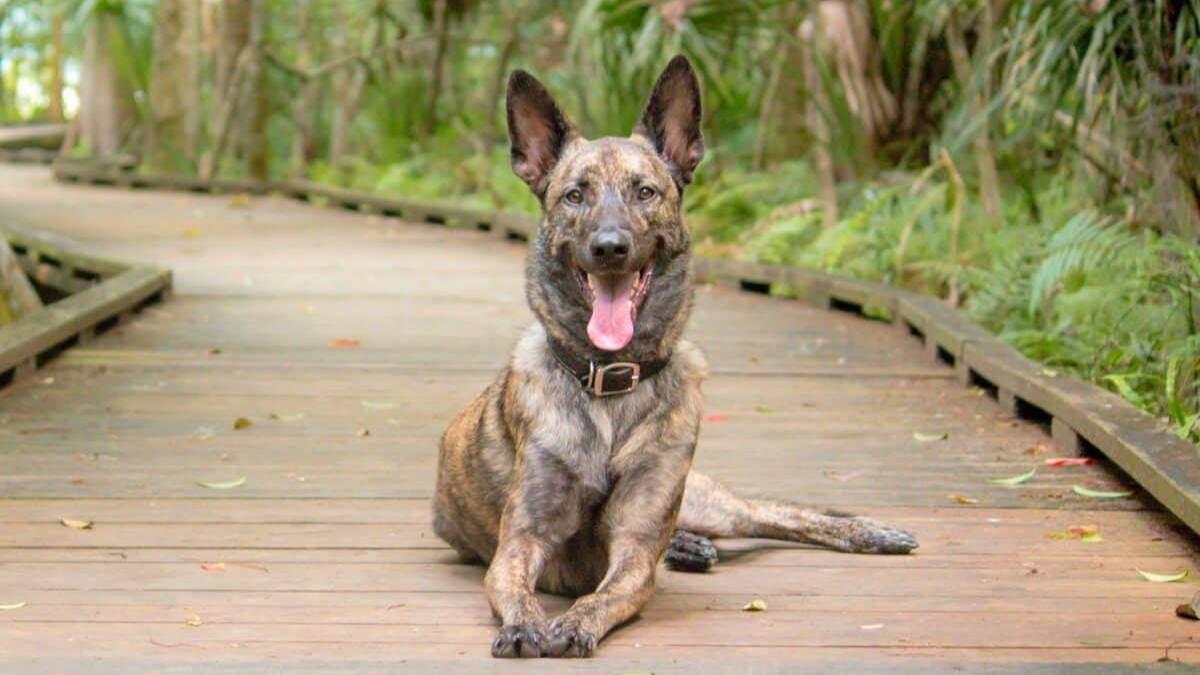
Training and Exercise
Training Tips
Dutch Shepherds are smart and obedient dogs, making them highly trainable. However, they require consistent training and socialization from an early age to ensure they become well-behaved adult dogs. Positive reinforcement techniques work best for this breed, as they respond well to rewards and praise.
To train a Dutch Shepherd, it's important to establish yourself as the pack leader. This means setting clear rules and boundaries and enforcing them consistently. Basic obedience commands such as sit, stay, come, and heel should be taught early on and reinforced regularly.
Exercise Requirements
Dutch Shepherds are active and energetic dogs that require plenty of exercise to stay healthy and happy. They enjoy running, hiking, and playing, and need both mental and physical stimulation to prevent boredom and destructive behavior.
Daily exercise is essential for this breed, and they require at least 60 minutes of physical activity each day. This can include running, playing fetch, or going for long walks. Mental stimulation is also important, and activities such as obedience training, agility, and puzzle games can help keep them mentally sharp.
Owners should ensure that their Dutch Shepherd is getting enough exercise and mental stimulation to prevent behavioral issues and promote overall health and well-being.
Activities and Work
Working Roles
Dutch Shepherds are known for their versatility and intelligence, which makes them excellent working dogs. They have been used in various roles such as law enforcement, military, and search and rescue. Due to their high energy levels and trainability, they excel in these roles and are highly valued by their handlers.
In law enforcement, Dutch Shepherds are often used as police dogs. They are trained to detect drugs, explosives, and other contraband. They are also used for tracking and apprehending suspects. Their athleticism and agility make them ideal for this type of work.
In the military, Dutch Shepherds are used for similar roles. They are trained to detect explosives and to search for and apprehend enemies. They are also used for search and rescue missions. Their loyalty and courage make them excellent companions for soldiers in the field.
Sports and Agility
In addition to their working roles, Dutch Shepherds also excel in sports and agility competitions. They are highly athletic and love to run and play. They are often used in agility competitions where they must navigate obstacles such as jumps, tunnels, and weave poles.

Dutch Shepherds also excel in herding competitions. They are natural herders and have been used for this purpose for centuries. They are highly intelligent and can quickly learn to respond to commands and signals from their handlers.
Overall, Dutch Shepherds are highly versatile dogs that excel in a variety of roles. Whether they are working in law enforcement or competing in agility competitions, they are sure to impress with their intelligence, athleticism, and loyalty.
Choosing a Dutch Shepherd
When it comes to choosing a Dutch Shepherd, there are a few things to consider. Whether you are looking to adopt or purchase a puppy from a breeder, it is important to do your research and make an informed decision.
Selecting a Breeder
If you decide to purchase a Dutch Shepherd puppy from a breeder, it is important to find a reputable breeder. Look for breeders who prioritize the health and well-being of their dogs, and who perform health screenings on their breeding stock. A good breeder should also be willing to answer any questions you may have and provide you with references from previous customers.
When selecting a breeder, consider visiting their facility and meeting the puppies and their parents in person. This will give you a better idea of the conditions in which the puppies are raised, as well as their temperament and personality.
Considerations for Adoption
If you are considering adopting a Dutch Shepherd, there are a few things to keep in mind. First, research local rescue organizations and shelters that specialize in Dutch Shepherds. These organizations may have puppies or adult dogs available for adoption.
When adopting, it is important to understand that the dog may have a history of abuse or neglect, and may require additional training and socialization. Be prepared to invest time and effort into helping your new dog adjust to their new home.
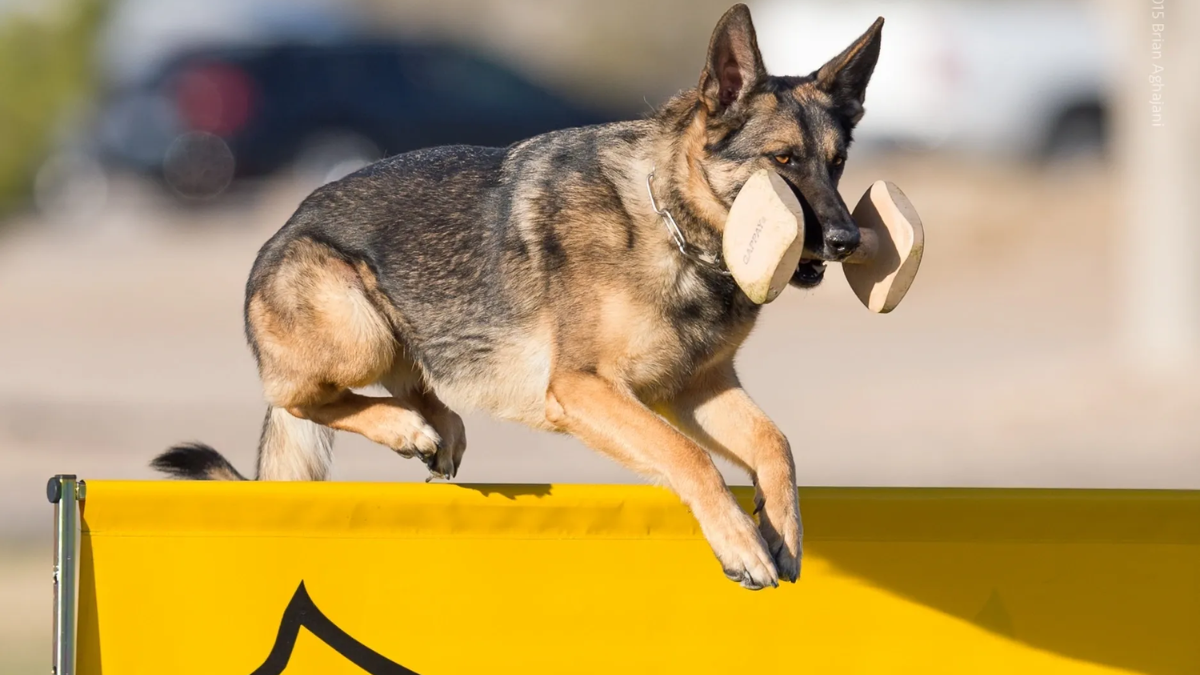
Whether you choose to adopt or purchase a Dutch Shepherd puppy from a breeder, it is important to do your research and make an informed decision. By selecting a reputable breeder or rescue organization, you can ensure that you are bringing home a healthy and happy dog that will be a loyal companion for years to come.
Photo Gallery
The Dutch Shepherd is a beautiful and versatile breed, and their pictures capture their unique characteristics and personalities. In this photo gallery, you will find a collection of stunning Dutch Shepherd dog pictures that showcase their brindle, red, gold, silver, black, and brown coats.
The brindle Dutch Shepherd is one of the most popular color variations, and it's easy to see why. With their striking stripes of black, brown, and gold, they are truly a sight to behold. Red Dutch Shepherds are also quite common and can range from deep mahogany to a lighter copper color.
Gold Dutch Shepherds have a beautiful, golden coat that shines in the sunlight, while silver Dutch Shepherds have a unique, almost metallic sheen to their fur. Black Dutch Shepherds are sleek and striking, while brown Dutch Shepherds have a warm, earthy tone to their coats.
Whether they're posing for the camera or captured in action, Dutch Shepherds always look impressive. From their intense gaze to their muscular build, these dogs are a joy to photograph. Bold, confident, and intelligent, the Dutch Shepherd is a breed that truly stands out.
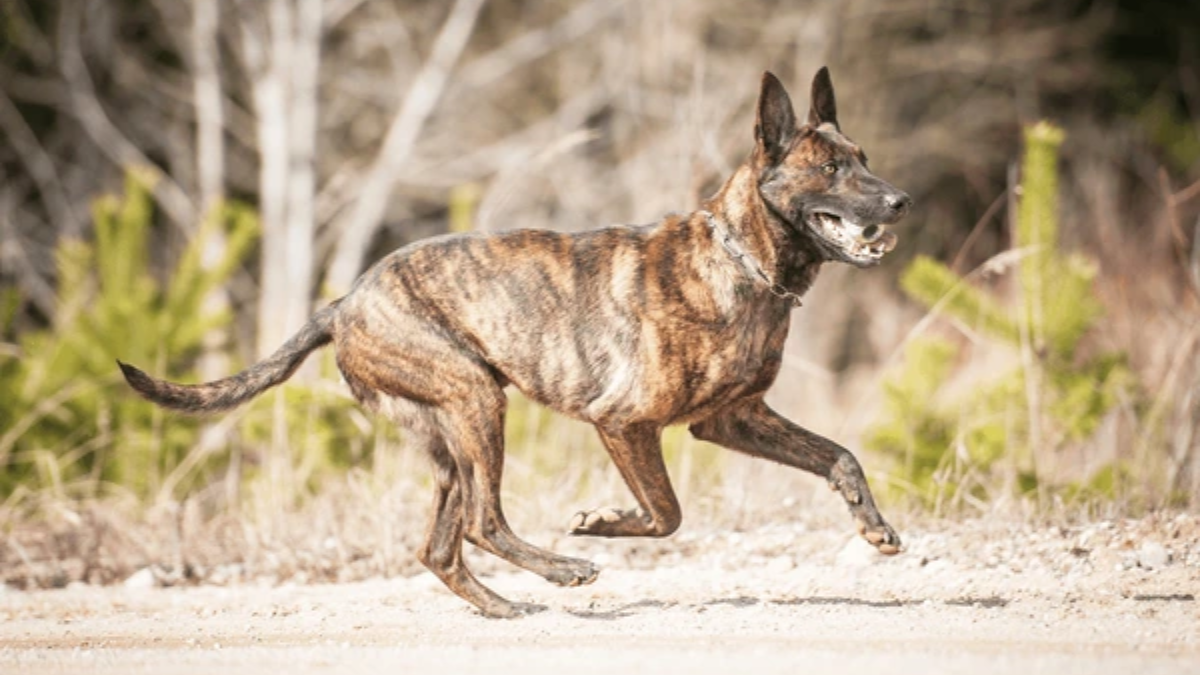
In conclusion, the Dutch Shepherd dog pictures in this photo gallery showcase the breed's unique beauty and personality. With their brindle, red, gold, silver, black, and brown coats, these dogs are a stunning addition to any family or working environment.
Conclusion:
In conclusion, Dutch Shepherd Dog Pictures offers a glimpse into the captivating beauty and versatility of this remarkable breed. From their striking appearance to their intelligent and loyal nature, Dutch Shepherds embody qualities that make them beloved companions and skilled working dogs. Whether captured in action or showcasing their unique coat colors and patterns, these images reflect the breed's athleticism, agility, and unwavering devotion to their owners. As potential owners explore these captivating visuals, they gain insight into the Dutch Shepherd's size, coat variations, and overall demeanor.
These pictures serve as a valuable resource for individuals considering adding a Dutch Shepherd to their family, providing a visual representation of what to expect from this extraordinary breed. Whether admiring their regal stance or witnessing their playful antics, Dutch Shepherd Dog Pictures offers a glimpse into the joys of sharing life with such a versatile and loyal canine companion. By appreciating these images, prospective owners can better understand the unique qualities and characteristics that make the Dutch Shepherd a cherished member of countless households around the world.
Frequently Asked Questions
- What are the distinguishing features of a Dutch Shepherd?
- Dutch Shepherds are medium-sized dogs with a muscular build and a distinctive brindle coat. They have a wedge-shaped head, almond-shaped eyes, and erect ears. Their tail is long and tapered, and they have a lively and alert expression. Dutch Shepherds are known for their agility, speed, and endurance, which make them excellent working dogs.
- Can Dutch Shepherds be solid black?
- Yes, Dutch Shepherds can be solid black, but it is a rare color for the breed. The most common colors for Dutch Shepherds are brindle, fawn, and black with brindle markings. Solid black Dutch Shepherds are not recognized by the breed standard, but they are still considered purebred.
- What should I expect when raising Dutch Shepherd puppies?
- Dutch Shepherd puppies are energetic and intelligent, but they can also be stubborn and independent. They require early socialization and training to ensure that they become well-behaved adult dogs. Dutch Shepherds are loyal and protective of their families, but they can be wary of strangers. They need plenty of exercise and mental stimulation to prevent boredom and destructive behavior.
- Are Dutch Shepherds suitable for families with children?
- Yes, Dutch Shepherds can be great family dogs, but they require a lot of attention and training. They are loyal and protective of their families, but they can be high-energy Malinoiss and rambunctious. Dutch Shepherds should be supervised around young children, as they can accidentally knock them over or play too rough.
- What is the average size of a full-grown Dutch Shepherd?
- The average height of a male Dutch Shepherd is 22-24 inches (56-61 cm), and the average height of a female Dutch Shepherd is 21-23 inches (53-58 cm). The average weight of a male Dutch Shepherd is 50-70 pounds (23-32 kg), and the average weight of a female Dutch Shepherd is 40-60 pounds (18-27 kg).
- How can one differentiate between a Dutch Shepherd and a Belgian Malinois?
- Dutch Shepherds and Belgian Malinoiss are both medium-sized, high-energy dogs that are often used for police and military work. However, there are some key differences between the two breeds. Dutch Shepherds have a brindle coat and a more wedge-shaped head, while Belgian Malinois have a short, solid-colored coat and a more square-shaped head. Dutch Shepherds are also more rare than Belgian Malinois.




